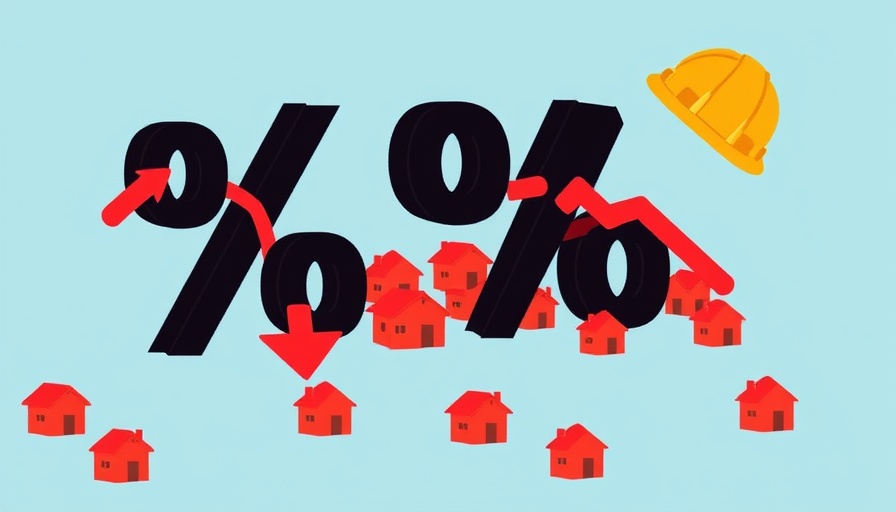
Job Growth Data: A Red Flag for the Economy
The recent job growth numbers revealed an alarming trend, reflecting a notable slowdown in the U.S. economy. August's total non-farm payroll additions were shockingly low, with only 22,000 new jobs created—a stark contrast to economists' expectations. This indicates a cooling labor market, a situation further exacerbated by downward revisions from previous months, totaling a net job loss of 13,000 in June.
Understanding the Impact of Rising Unemployment
Alongside this sluggish job growth, the unemployment rate ticked upward to 4.3%, marking the highest level since October 2021, with an unemployment count of 7.4 million. Economists interpret these figures as indicative of a market losing momentum but not collapsing outright. The average job growth over the last three months now rests at just 29,000—a sharp decline compared to earlier in the year.
The Evolving Landscape Across Sectors
While the health care sector did provide a silver lining by adding 31,000 jobs in August, other sectors suffered significant blows. Notably, the federal government saw a reduction of 15,000 jobs, and the mining, quarrying, and oil and gas extraction industries faced a loss of 6,000 jobs. Additionally, manufacturing continues to struggle, losing 12,000 jobs in August alone, and a staggering 78,000 jobs since the start of the year, potentially influenced by ongoing trade tariffs.
Construction Sector's Dilemma
The construction industry isn't faring much better, with a reduction of 7,000 jobs in August. Residential construction has been particularly hard hit, losing 5,200 jobs. Although heavy and civil engineering construction managed a slight uptick of 2,300 jobs, the overall landscape suggests challenges ahead for builders.
Immediate Implications For Real Estate Agents
These disappointing job numbers are likely to have immediate ramifications for real estate agents. A softer job market can impact homebuyer confidence and spending power, leading to a potential decrease in housing demand. As more individuals face difficulty finding employment, the market landscape becomes uncertain, highlighting the importance for agents to pivot strategies and adapt to the shifting environment.
Future Predictions: Federal Reserve's Urgent Decisions
Economists agree that the latest job numbers nearly guarantee that the Federal Reserve will likely consider cutting interest rates in its upcoming September meeting. With inflation remaining stable and job growth faltering, these factors combine to create a compelling case for action from the Fed, which could further influence mortgage rates and overall market dynamics.
Final Thoughts: Navigating a Cooling Economy
As we navigate these uncertain economic waters, real estate agents must stay informed, adapt strategies accordingly, and remain proactive in engaging potential buyers. The deck seems increasingly stacked against a robust housing market in the near term, necessitating creativity and resilience in approaching this evolving landscape.
Ultimately, understanding economic indicators, like job growth, is crucial for agents looking to make informed decisions. Keeping an eye on these trends will empower you to better serve your clients and make strategic adjustments as necessary.
 Add Row
Add Row  Add
Add 




Write A Comment